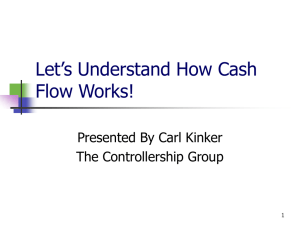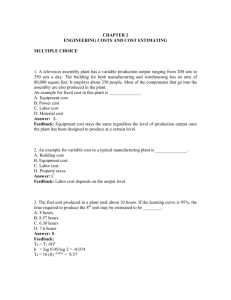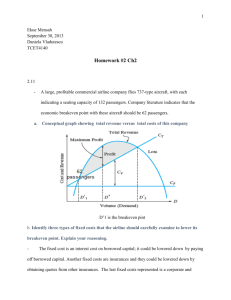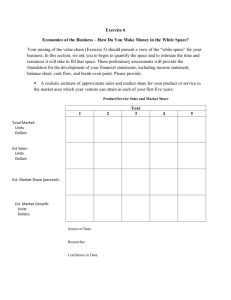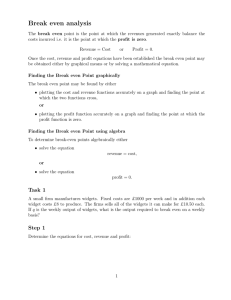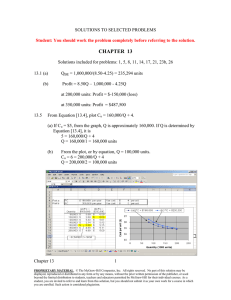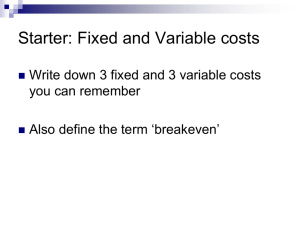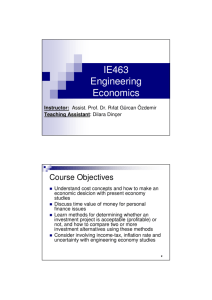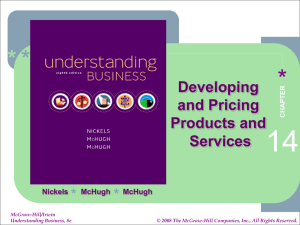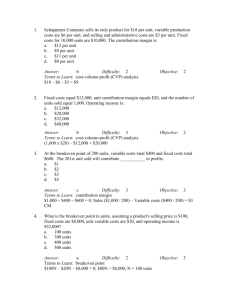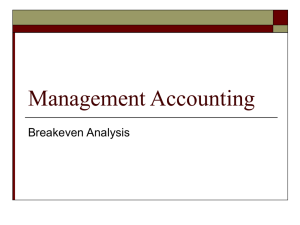SOLUTIONS TO SELECTED PROBLEMS
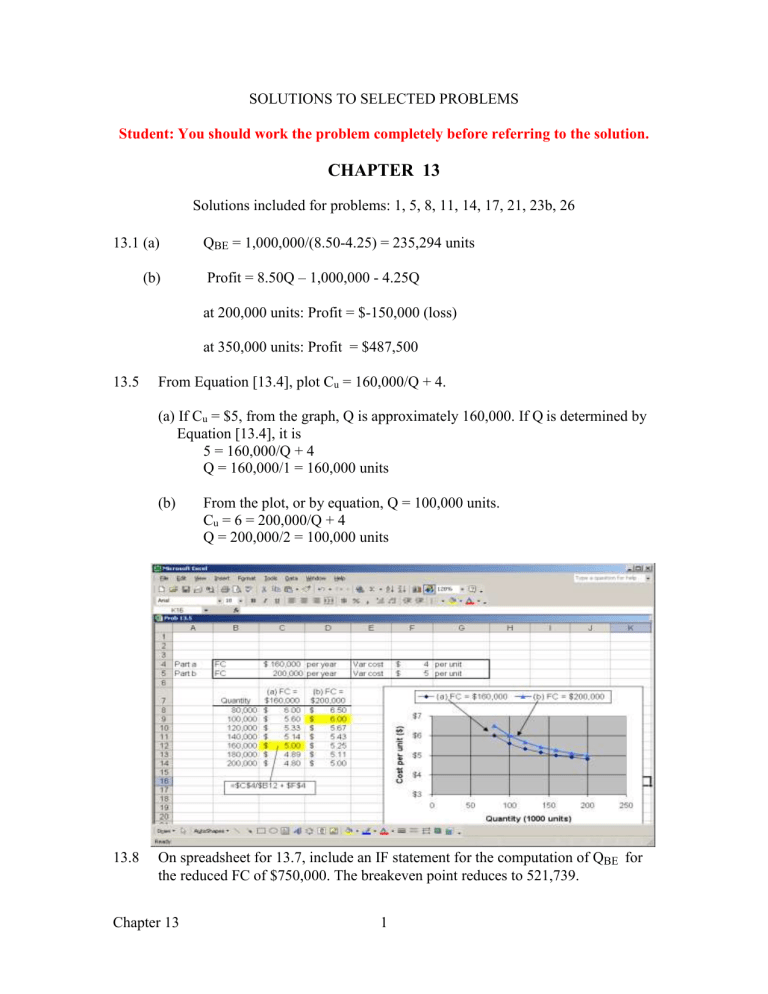
SOLUTIONS TO SELECTED PROBLEMS
Student: You should work the problem completely before referring to the solution.
CHAPTER 13
Solutions included for problems: 1, 5, 8, 11, 14, 17, 21, 23b, 26
13.1 (a)
(b)
Q
BE
= 1,000,000/(8.50-4.25) = 235,294 units
Profit = 8.50Q – 1,000,000 - 4.25Q at 200,000 units: Profit = $-150,000 (loss) at 350,000 units: Profit = $487,500
13.5 From Equation [13.4], plot C u
= 160,000/Q + 4.
(a) If C u
= $5, from the graph, Q is approximately 160,000. If Q is determined by
Equation [13.4], it is
5 = 160,000/Q + 4
Q = 160,000/1 = 160,000 units
(b) From the plot, or by equation, Q = 100,000 units.
C u
= 6 = 200,000/Q + 4
Q = 200,000/2 = 100,000 units
13.8 On spreadsheet for 13.7, include an IF statement for the computation of Q
BE
for the reduced FC of $750,000. The breakeven point reduces to 521,739.
Chapter 13 1
13.11 FC = $305,000 v = $5500/unit
(a) Profit = (r – v)Q – FC
0 = (r – 5500)5000 – 305,000
(r – 5500) = 305,000 / 5000
r = $5561 per unit
(b) Profit = (r – v)Q – FC
500,000 = (r – 5500)8000 – 305,000
(r – 5500) = (500,000 + 305,000) / 8000
r = $5601 per unit
13.14 Let x = hours per year
-800(A/P,10%,3) - (300/2000)x -1.0x = -1,900(A/P,10%,5) - (700/8000)x - 1.0x
-800(0.40211) - 0.15x - 1.0x = -1,900(0.2638) - 0.0875x - 1.0x
x = 2873 hours per year
13.17 (a) Let x = breakeven days per year. Use annual worth analysis.
-125,000(A/P,12%,8) + 5,000(A/F,12%,8) - 2,000 - 40x = -45(125 +20x)
-125,000(0.2013) + 5,000(0.0813) - 2,000 - 40x = -5625 –900x
x = 24.6 days per year
Chapter 13 2
(b) Since 75 > 24.6 days, buy. Annual cost is $-29,756
13.21 Let x = yards per year to breakeven
(a) Solution by hand
-40,000(A/P,8%,10) - 2,000 -(30/2500)x = - [6(14)/2500]x
-40,000(0.14903) - 2,000 - 0.012x = -0.0336x
x = 368,574 yards per year
(b) Solution by computer: There are many Excel set-ups to work the problem.
One is: Enter the parameters for each alternative, including some number of yards per year as a guess. Use SOLVER to force the breakeven equation to equal 0, with a constraint that total yardage be the same for both alternatives.
13.23 (b) Enter the cash flows and develop the PW relations for each column. Breakeven is between 15 and 16 years. Selling price is estimated to be between $206,250 and $210,000.
Chapter 13 3
Breakeven occurs here
13.26 (a) By hand: Let P = first cost of sandblasting. Equate the PW of painting each 4 years to PW of sandblasting each 10 years, up to 38 years.
PW of painting
PW p
= -2,800 - 3,360(P/F,10%,4) - 4,032(P/F,10%,8) - 4,838(P/F,10%12) –
5,806(P/F,10%,16) - 6,967(P/F,10%,20) -8,361(P/F,10%,24) –
10,033(P/F,10%,28) - 12,039(P/F,10%,32) -14,447(P/F,10%,36)
= $-13,397
13.26 (cont)
PW of sandblasting
PW s
= -P - 1.4P(P/F,10%,10) - 1.96P(P/F,10%,20) - 2.74P(P/F,10%,30)
-P[1 + 1.4(0.3855) + 1.96(0.1486) + 2.74(0.0573)]
= -1.988P
Chapter 13 4
Equate PW relations to obtain P = $6,739
(b) By computer: Enter the periodic costs. Use SOLVER to find breakeven at P = $6739.
(c) Change MARR to 30% and 20%, respectively, and re-SOLVER to get:
30%: P = -$7133 20%: P = -$7546
Chapter 13 5
